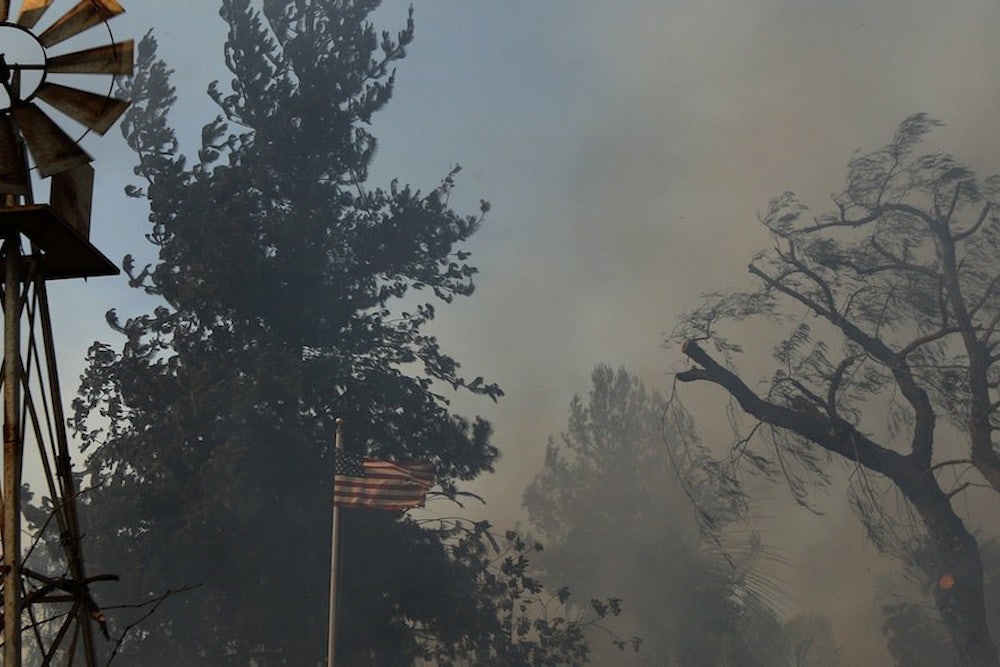For specific matters of public policy to be directly damaging to particular politicians, there has to be something real—a paper trail of some kind—linking them to something unpopular. A vote for TARP. A vote for Obamacare. A pledge to support a personhood amendment. Tangible stuff.
I think there are a bunch of reasons to doubt that the Obama administration's plan to reduce greenhouse gas emissions will hurt Democrats in the coming election. But a big one is that there's no easy way for Republicans to establish a link between the policy and the small number of Democrats who might be damaged by it.
Come 2016, though, there's a decent chance that the EPA's proposal will place Republicans in the very bind they hoped it would create for Democrats this year. And if so, it'll be precisely because Democrats will be able to identify a link between Republicans and a disqualifying policy view.
Begin with the counterintuitive premise that the public overwhelmingly supports limiting greenhouse gas emissions, even at the cost of higher energy bills. The incumbent Democrats who oppose regulating climate pollution are typically reflecting the intensity of parochial concerns in their states and districts, rather than first-order public opinion.
Then consider that the new regulations won't be finalized and ready for implementation until a year from now at the very earliest—just as the Republican presidential primary begins taking real shape. These regulations will invite opposition from a smattering Democrats acting on behalf of in-state interests. But conservatives will expect an entirely different level of opposition from their candidates.
It won't be enough for Republican presidential candidates (and perhaps certain incumbent senators) to oppose the rule. They'll face enormous pressure to dismiss or deny the underlying issue the regulations are meant to address. Right now, the leftmost pose Republicans can assume is to say that climate science, unlike environmental economics, is so complex that they're unable to formulate opinions about its most consequential finding. That's the talking point du jour, which just happens to coincide with the end of the 2014 primary season.
In a year or more, it won't be adequate. Conservative candidates will once again begin leapfrogging each other to cast climate change as a cooked up pretext for a liberal power grab, and treating the regulations themselves as protocols of a sinister plot. The Washington Post's Greg Sargent imagines a "raise-your-hands moment" in which every GOP contender on the debate stage, including the electable establishment favorite, refuses to support the view that climate change is real and the result of human activity.
That would be the indelible link between the GOP and climate change denial that Republicans won't be able to make between their heavily spun "national energy tax" and Democrats running in red states this cycle. And as near as I can tell, the Republican Party's plan to neutralize this liability isn't to come belatedly to terms with the scientific consensus but to reduce the candidates' exposure to debate moderators who might ask questions like that. Inspiring stuff.
If reducing emissions is broadly popular, reactionary antiscience is not. Climate change denial is almost exclusively the province of the American far right. And if the American far right won't countenance a GOP nominee who concedes the basic facts about global warming, then it will pick an unelectable candidate, or disqualify an electable one, once again.
